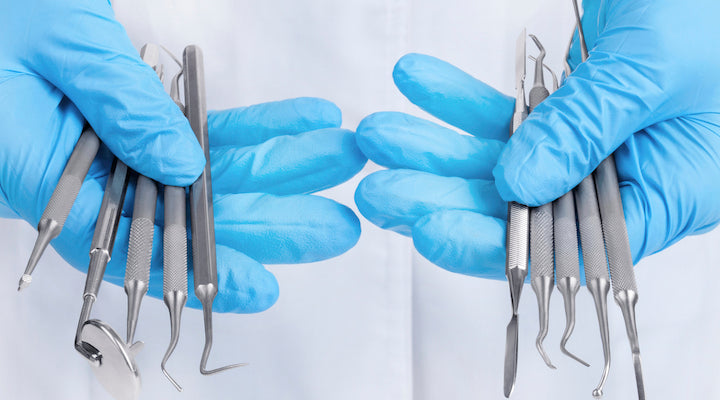
Beyond the Chair: Exploring the Art of Dental Instruments
Introduction
Dentistry is a precise blend of science and artistry, where professionals work diligently to maintain our oral health. At the heart of this profession lies a remarkable array of instruments, each meticulously designed and crafted to perform specific functions. In this comprehensive guide, we delve into the world of dental instruments, exploring their evolution, significance, and the artistry behind their creation.
The Evolution of Dental Instruments
Dental instruments have come a long way since the early days of dentistry. From rudimentary tools to cutting-edge precision instruments, their evolution mirrors the progress of dental science itself.
Historical Artifacts
In the annals of dental history, we find instruments like toothkeys and dental forceps, which date back centuries. These archaic tools were used for extractions, often with less finesse than today's counterparts.
Modern Marvels
Contemporary dental instruments are the result of extensive research and development. Innovations like dental lasers, ultrasonic scalers, and digital imaging devices have revolutionized patient care. These advanced tools are designed not only for clinical effectiveness but also for patient comfort.
The Craftsmanship Behind Dental Instruments
Precision Engineering
Dental instruments are marvels of precision engineering. Manufacturers use state-of-the-art technology to create instruments with tolerances measured in micrometers. This precision ensures that procedures are as minimally invasive and painless as possible.
Materials Matter
High-quality materials like stainless steel and titanium are the backbone of dental instruments. Their durability, corrosion resistance, and biocompatibility are essential for ensuring patient safety and instrument longevity.
Artful Ergonomics
Ergonomics play a vital role in instrument design. The comfort and ease of use for dental professionals are meticulously considered. Ergonomic handles and grips reduce fatigue during long procedures, allowing dentists to maintain their focus and accuracy.
The Significance of Dental Instruments
Diagnostic Precision
Dental instruments are critical for accurate diagnosis. Tools like dental mirrors and explorers help dentists visualize hard-to-reach areas, ensuring early detection of oral health issues.
Pain Management
Local anesthetics delivered through specialized syringes make dental procedures virtually painless. These instruments are designed for precise drug delivery, enhancing patient comfort.
Restorative Excellence
From dental burs and excavators to dental drills and curing lights, instruments for restorative procedures are designed to recreate the natural look and function of teeth. This attention to detail is crucial for patients' confidence and well-being.
The Artistry of Instrument Design
Aesthetics Meets Function
Dental instrument designers combine aesthetics with functionality. Instruments are often sleek and stylish, reflecting the modern approach to dentistry. This aesthetic appeal can help alleviate patient anxiety.
Customization
Many dental instruments can be customized to fit a dentist's unique preferences. Personalized options allow dental professionals to work with tools that feel like extensions of their hands.
Innovation in Action
The dental industry is constantly evolving, with new instruments and techniques emerging regularly. Dentists worldwide collaborate with instrument manufacturers to refine existing tools and develop innovative solutions to enhance patient care.
FAQs (Frequently Asked Questions)
What is the role of dental instruments in oral health?
Dental instruments play a vital role in maintaining oral health by aiding in diagnosis, treatment, and prevention of oral diseases and conditions.
How have dental instruments evolved over time?
Dental instruments have evolved from rudimentary tools to highly advanced precision instruments, incorporating cutting-edge technology for better patient care.
Are dental instruments safe for patients?
Yes, dental instruments are designed with patient safety in mind, using biocompatible materials and adhering to strict quality standards.
What are some common dental instruments used during routine check-ups?
During routine check-ups, dentists typically use instruments like dental mirrors, explorers, and scalers to examine and clean teeth.
How do dental instruments contribute to pain management during procedures?
Dental instruments, such as precision syringes for local anesthetics, ensure painless procedures by delivering medication with utmost accuracy.
Can dental instruments be customized to suit individual preferences?
Yes, many dental instruments can be customized to meet the specific needs and preferences of dental professionals, enhancing their effectiveness and comfort.
